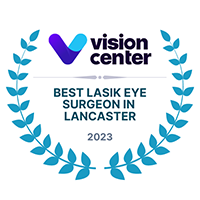Dry Eye Syndrome
Tears provide moisture and lubrication to keep our eyes comfortable and to help us see. This happens even when we are not crying. Tears are a mixture of special proteins and antibodies that help avoid infection, mucus, oils, and water. Special glads around our eyes contain this mixture. If there is a problem with the glands or this mixture, dry eyes often result.
Symptoms
Dry eyes can cause an itchy sensation, the feeling of something in your eye, or a gritty feeling. Sometimes dry eyes can also cause redness, blurred vision and light sensitivity. Your body can also create too many tears as a result of dry eyes because the irritation of the dryness triggers more tear production.
Causes
Air conditioners, heaters, or other things in your environment can dry up your tears. Another reason dry eye may develop is menopause and the aging process. If your eyelids don’t close all the way when you close your eyes, dry eye may result. Also, side effects of some medications may cause dryness. If you have a disease (i.e. Rheumatoid arthritis or Sjorgren’s syndrome) that affects your ability to make natural tears, you may develop dry eye syndrome.
Treatment
An exam with your eye doctor is the best first step in determining the appropriate treatment for your dry eyes. There are many over the counter ointments and artificial tears on the market. You may need to use an ointment specifically designed for use at bedtime if you have chronic dry eye. There are also prescription eye drops that help increase tear production. Adding omega-3 or fish oil to your diet can also help. Another treatment option your eye doctor may suggest is temporary punctal occlusion. This closes the duct that drains tears from your eye. If the temporary one works well, your doctor may recommend a permanent one.
If you are suffering from any of the symptoms of dry eye syndrome and need treatment in the Reading, PA, area, contact Chesen Laser Eye Center to book a consultation today.






